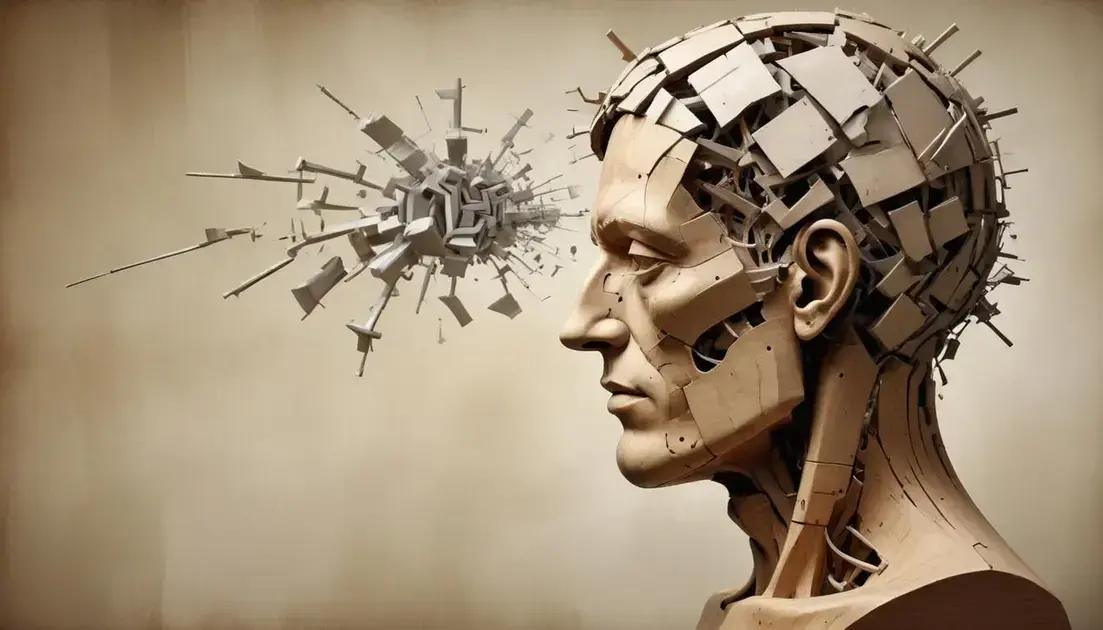
Derrida: Deconstructing Western Thought
Deconstruction, a concept popularized by Jacques Derrida, challenges traditional interpretations of language and meaning. It reveals that meanings are not fixed and can vary based on context, encouraging deeper critical thinking. While deconstruction presents challenges, such as confusion and resistance to change, its impact on literature, philosophy, and other fields is significant. Embracing deconstruction allows for a richer understanding of texts, making it a valuable tool for engaging with complex ideas.
Deconstruction is not just a method; it’s a powerful way to question everything we think we know about language and meaning. Are you ready to dive deeper into the complexities of thought?
Understanding deconstruction in philosophy
Understanding deconstruction in philosophy can shine a light on how we interpret language and meaning. It invites us to take a closer look at texts, challenging what we think we understand.
At its core, deconstruction reveals that words can mean different things depending on context. This idea can seem tricky, but it helps us see that meaning isn’t fixed. Think about how a single phrase can make you feel in different situations.
The Role of Language
Language shapes our thoughts and perceptions. For instance, terms we use may carry different feelings for one person than for another. This is why examining words carefully matters. It can change our understanding of important ideas.
Exploring Meaning
Through deconstruction, we ask questions like: What assumptions do we carry? Are there hidden meanings in what we read? This approach doesn’t aim to dismiss important ideas but encourages deeper exploration and critical thinking.
Philosophers like Derrida emphasized that written texts can lead us to various interpretations. Each reader brings their background and experiences. That’s what makes discussions around texts vibrant and interesting.
Why It Matters
Understanding deconstruction helps us engage in discussions more thoughtfully. In a world filled with information, it allows us to critically assess how we communicate and interpret messages from others.
Ultimately, embracing deconstruction enriches our thinking. It encourages us to be open-minded and thoughtful about how meanings are formed in our language.
Derrida’s impact on contemporary thought
Derrida’s impact on contemporary thought has been significant. He opened new doors for how we view language and meaning. This shift encourages us to think critically about what we read and hear.
One major idea is that meaning isn’t fixed. Derrida showed us that words can have multiple interpretations. This is called deconstruction. It’s a method that helps us look deeper into texts.
Challenging Traditional Ideas
Before Derrida, many believed that language directly conveys meaning. He challenged this idea, making us aware that our interpretations depend on various factors. The context, culture, and personal experiences all play a part.
Influence on Literature and Philosophy
Many writers and thinkers have used Derrida’s ideas. In literature, authors explore different meanings within their texts. Philosophers question established truths and norms. This has led to fresh perspectives on many topics.
Derrida also impacted fields like law, feminism, and politics. His approach encourages critical thought and challenges traditional views. This has helped diversify discussions in many areas.
Relevance Today
In today’s world, where information is everywhere, Derrida’s thoughts remain relevant. They remind us to question and analyze what we read and hear. This is essential in our fast-paced society, where quick judgments are common.
By understanding Derrida’s legacy, we can engage with ideas more thoughtfully. It inspires us to look beyond the surface and seek deeper meanings in our daily lives.
The challenges presented by deconstruction
The challenges presented by deconstruction can be complex. While it offers new ways to think, it can also confuse readers. Many struggle with its ideas, especially at first.
One main challenge is understanding that meaning isn’t fixed. This idea can feel unsettling. People often want clear answers and solid interpretations. Deconstruction shakes that certainty.
Complexity of Interpretation
With deconstruction, texts can have multiple meanings. This complexity can overwhelm those new to the concept. Readers might feel lost, not knowing which interpretation to choose.
Resistance to Change
Many are used to traditional ways of thinking about texts. Changing this mindset takes time. Some may resist embracing new interpretations, preferring the old ways.
Implications in Different Fields
In philosophy, law, and literature, deconstruction raises questions that can challenge established norms. This can lead to debates about meaning and context. Not everyone agrees, which adds to the complexity.
Furthermore, applying deconstruction in practical settings can be tricky. It requires careful analysis and a willingness to question what we think we know. Over time, this can lead to deeper understanding, but the journey may be difficult.
Certainly, these challenges don’t mean we should avoid deconstruction. Instead, they encourage us to engage with the ideas more critically. By facing these hurdles, we can gain valuable insights into language, meaning, and interpretation.
Conclusion
In conclusion, understanding the challenges of deconstruction can deepen our engagement with texts. While it may feel complex and unsettling, embracing these ideas can enhance our critical thinking.
Deconstruction asks us to question our assumptions and explore multiple meanings. This enriches our interactions with language and literature. Although some may resist change, the rewards of understanding and adaptation can be profound.
Ultimately, confronting these challenges allows us to grow as readers and thinkers. By welcoming the ambiguity that deconstruction brings, we open ourselves to a richer world of interpretation and insight.


